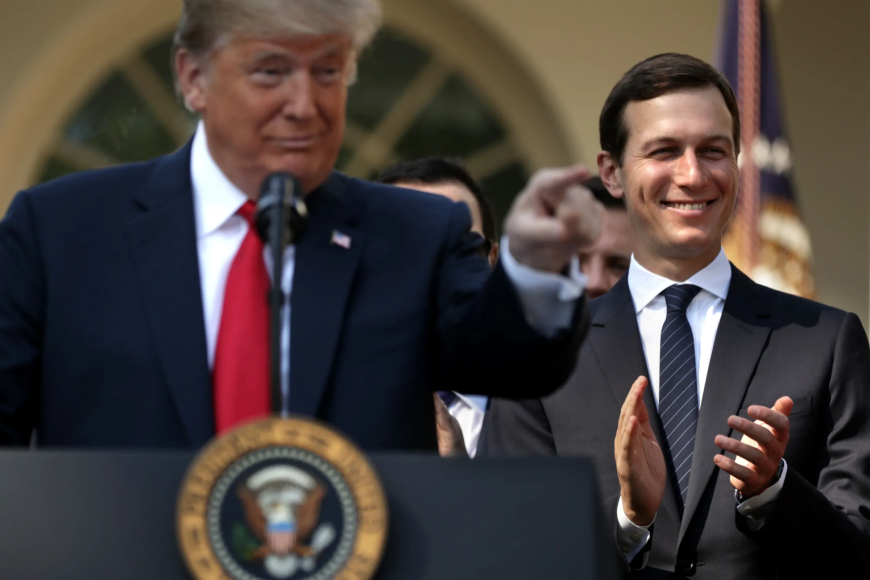President Trump Convenes White House Meeting on Post-War Gaza Strategy with Key Advisors
President Trump hosted a White House meeting on Gaza’s future, with Jared Kushner and key advisors discussing humanitarian aid, governance, and regional stability.

Washington, D.C. — President Donald Trump convened a high-level White House meeting this week to discuss plans for the governance and reconstruction of Gaza following the end of the Israel-Hamas conflict. The closed-door session brought together senior advisors, including Jared Kushner, and marked one of the administration’s most significant steps toward shaping a U.S.-backed vision for the region’s future.
Inside the White House Meeting
Sources familiar with the meeting described it as focused on three core areas: humanitarian relief, governance models for Gaza after Hamas, and long-term security arrangements. Kushner, who played a central role in the 2020 Abraham Accords, reportedly emphasized the need for Arab states’ involvement, particularly Egypt, Jordan, and the United Arab Emirates.
Other attendees included senior members of the National Security Council, State Department officials, and defense advisors. According to reports from The Washington Post, discussions also touched on the role of international organizations in overseeing aid distribution.
Trump’s Position on Gaza
President Trump has repeatedly stated that U.S. leadership will be crucial in ensuring stability in Gaza. During brief remarks to reporters, he noted that any solution must prevent the resurgence of militant groups while also ensuring humanitarian support reaches civilians.
“Gaza needs a fresh start,” Trump said. “We’re working with partners to create a safer, more stable future for the people there.”
Challenges Ahead
Despite the administration’s ambitions, experts warn that post-war Gaza planning is fraught with difficulties. Questions remain over who will govern the territory if Hamas loses control, and whether the Palestinian Authority or an international coalition would be acceptable to local populations.
Human rights organizations have also urged the White House to prioritize rebuilding hospitals, schools, and infrastructure damaged during the conflict, stressing that without rapid humanitarian assistance, instability could persist.
Regional and Global Implications
The meeting signals the Trump administration’s intent to position the U.S. as a key player in shaping Gaza’s future, at a time when international stakeholders are competing to influence outcomes. Analysts believe that the inclusion of Kushner suggests a return to the diplomatic framework established during the Abraham Accords, with hopes of leveraging Gulf states’ resources and political weight.














